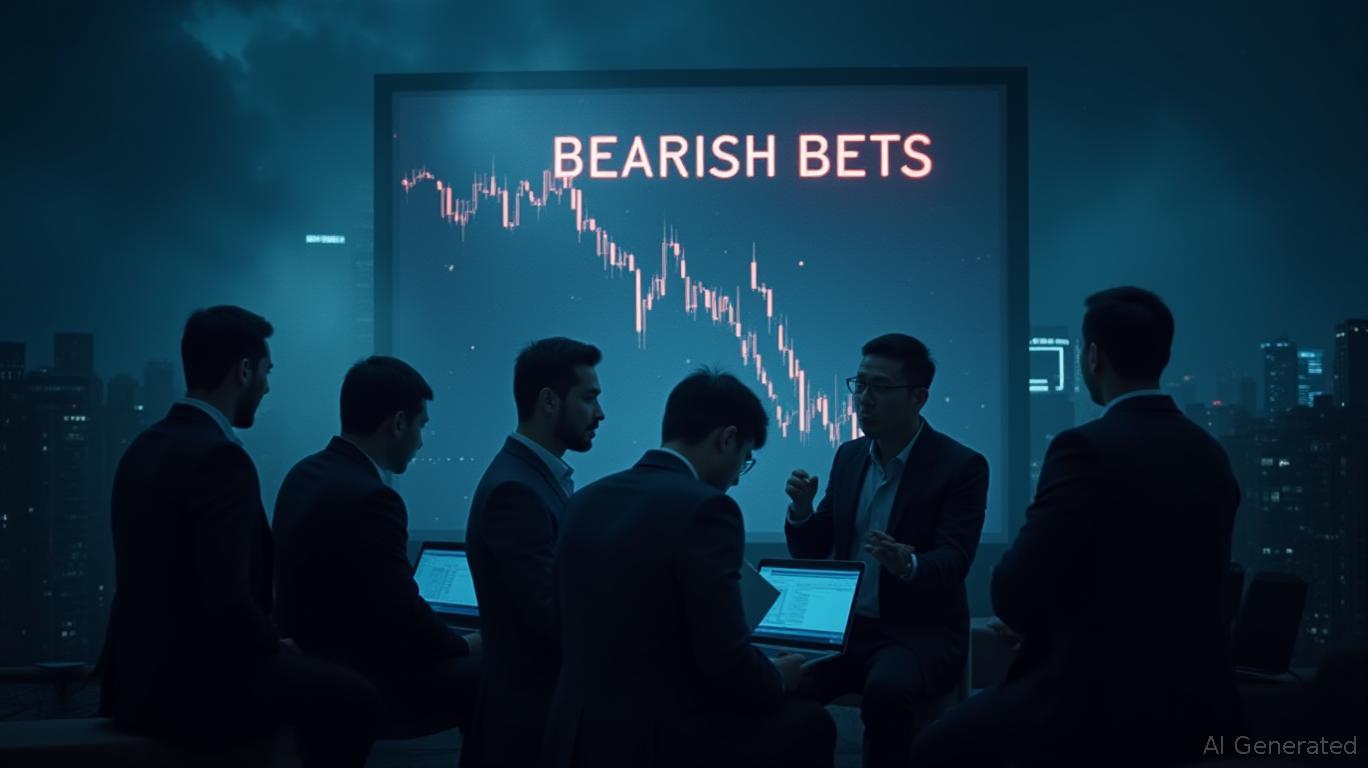Ethereum Updates: Buterin's Support Fuels ZK Token Rally, Elevates Ethereum as a Leading Liquidity Hub
- ZK token surged over 50% to $0.045 on November 1, 2025, driven by Ethereum co-founder Vitalik Buterin's endorsement. - ZKsync's Atlas upgrade introduced 30,000 TPS sequencer and Airbender system, enhancing Ethereum's scalability and cross-chain liquidity. - Matter Labs plans ZK governance token airdrop (33% to team/investors) to decentralize ZKsync and boost institutional adoption. - Analysts highlight 15,000 TPS and near-zero fees as key advantages positioning ZKsync for enterprise and real-time financi
On November 1, 2025, the value of the ZK token soared by more than 50%, jumping from $0.03 to $0.045, after receiving a notable endorsement from
Atlas, launched by ZKsync’s parent company Matter Labs, features a new high-speed sequencer that can handle up to 30,000 transactions per second (TPS) while remaining fully compatible with Ethereum, as detailed by Cryptobriefing. The upgrade also introduces Airbender, a mechanism that allows for instant confirmations and cross-chain settlements. These advancements help establish Ethereum as a "genuine liquidity powerhouse," according to a

The upgrade’s instant liquidity capabilities are especially impactful for institutional investors and real-world asset (RWA) transactions. Before Atlas, Layer-2 solutions like
Matter Labs has also revealed plans to further decentralize ZKsync by launching a governance token,
The sharp rise in ZK token’s value highlights both the technical strengths of the upgrade and the weight of Buterin’s endorsement. His tweet calling Ethereum "incorruptible" reinforced the project’s alignment with Ethereum’s foundational values, while also emphasizing ZKsync’s contribution to improving blockchain scalability. Experts observe that the upgrade’s emphasis on enterprise-level performance—such as 15,000 TPS and minimal fees—positions ZKsync as a strong option for institutional users and real-time financial services.
Disclaimer: The content of this article solely reflects the author's opinion and does not represent the platform in any capacity. This article is not intended to serve as a reference for making investment decisions.
You may also like
Six-figure salaries now required to afford a typical home as millennials continue renting in 47 out of 50 major U.S. metro regions
- U.S. housing affordability crisis locks out Gen Z/millennials as Baby Boomers dominate purchases, with first-time buyer share hitting 21% in 2025. - Median income required to buy a home exceeds $112,000 nationally, 30% above actual household earnings, forcing younger buyers to rent despite rising costs. - 46% of 2024 home purchases made by those aged 60+, highlighting intergenerational imbalance as home prices surged 53% since 2020. - Political debates frame affordability as partisan issue, with Trump li

Bitcoin Updates: Pessimistic Predictions and Market Uncertainty Keep Crypto Investors on Edge

Bitcoin News Today: Bitcoin Hits $100K: Can Bears Take Control or Will a Festive Rally Begin?
- Bitcoin fell below $100,000 amid macroeconomic uncertainty, institutional outflows, and technical breakdowns, losing 15% from its October peak. - Fed rate-cut delays and U.S.-China tensions worsened risk-off sentiment, while crypto's lack of yield made it vulnerable to tighter monetary policy. - Technical indicators show bearish momentum with RSI at 31.8 and MACD declining, as $800M was withdrawn from Bitcoin ETFs in a week. - Analysts caution a potential "Santa Rally" if rates cut and liquidity improves
NYC Mayoral Election: The Role of Prediction Markets Sparks Discussion Among Democrats
- Zohran Mamdani, NYC mayoral race frontrunner, holds 93-95% victory odds via prediction markets, backed by Obama but facing intra-party concerns over his progressive policies. - His affordability-focused platform—rent freezes, free transit, wealth taxes—energizes progressives while drawing Republican attacks and fears of emboldening conservatives. - Prediction markets ($397M traded) now shape public discourse, with critics warning they blur financial speculation and democratic debate through viral social
